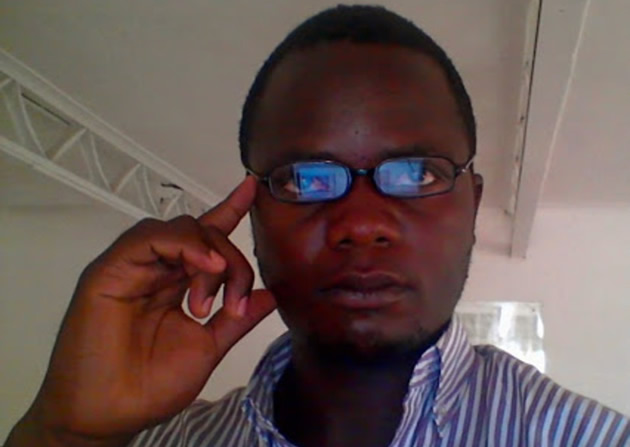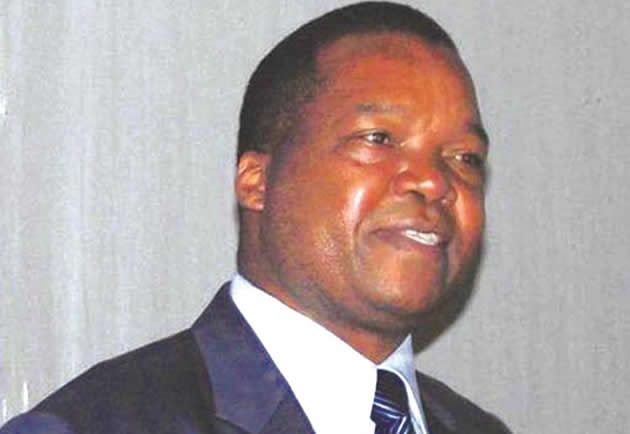‘Adopt concept of digital natives’

‘Revision’ is an educational website offering free access for Ordinary and Advanced Level students where they can access past Zimsec examination papers and possible answers to the questions.
The website was launched on January 5 this year. So far over 55 000 users have accessed the site which has about 15 000 views per month. The Herald Review’s Abigail Mawonde (AM) talks to one of the brains behind the project, Garikai Dzoma (GD).
AM: What is the official name of the website?
GD: The website is called ‘Revision’. We decided to keep it simple. The whole idea was to make it accessible to many students. Even the website’s address, it is so generic. It was all about being accessible and understandable by the targeted users.
AM: Who are the people behind the project?
GD: It is just my friend Donald Mutekede and I. I have known Donald since year 2000 when we were in Form One. We went to the same school and we were in the same classes from Form One up to Six. And then we went to University together and did the same course — Bachelor of Accountancy. We have been friends for almost sixteen years now.
AM: How did you come up with the idea?
GD: When we finished school, both of us couldn’t find work. So, we decided to become part time teachers and then as we did our work we discovered that when you google for something on internet, for instance subjects like History, you find that European topics tend to dominate. For example, when you want to know what the ‘Scramble for Africa’ was all about and the ‘Mfecane’ you can’t access all that, then there is an issue of not finding certain things in Shona.
AM: So, how did you start?
GD: The first subject that we decided to put up on the site was Shona, Shona-grammar. We couldn’t find a single website that had those notes, so we just thought people would find it useful. So, after a couple of weeks we got several e-mails from people telling us how our notes had really been useful to them. They requested that we add other subjects as well and so that’s how we ended up adding other subjects.
Having noted that there are a lot of textbooks that have various information about certain subjects, we then decided to gather information from the books and placed it on the site so that it could be accessed in one place, combined, comprehensive and covering all topics.
AM: How do students get to find out about the website?
GD: The model that we use is through word of mouth, as someone uses the site they will tell the friend about it, then the friend will tell the other.
AM: So, how do you handle the workload, just the two of you?
GD: Although I am technical, sometimes we have to outsource some of the jobs for instance, if we need some complex work to be done, work that is too technical which we can’t do we just find someone who can do it for us. But I am happy that we can do most of the work by ourselves. Besides being a teacher, I am a part time blogger at Tech Zim. I attained my knowledge of computers at Form Six and that was the first time I did computers and then I studied and attained a Linux Administration certificate with the University of Zimbabwe as well as a PC Maintenance certificate so that is where I attained my knowledge from. I do not really find anything difficult about computer usage.
AM: How do you get the Zimsec past examination papers onto the site? Do you scan them?
GD: No, they are not scanned. We type them manually because our work ethic is that we want to put our touch in everything to make sure the work meets our expected standards. Sometimes there could be errors in the examination papers and we know they are inevitable but we want to make sure that we always avoid them. The website is still work in progress, it is still in its infancy stage since we have been trying to make sure that everything is done to perfection.
We have deliberately left documents that need scanning for the time being till we come up with a strategy on how we are going to handle them. For now we want to concentrate on something that we are capable of doing.
AM: Do you have intentions to avail Grade Seven pupils’ past examination papers in the future?
GD: Let me be honest, for now we do not have such plans. Well, maybe in the next two, three or so years. There used to be a website for Grade Sevens called Brainstorm Academy but I do not know what happened to them…that is why we decided to do something that is different from them. Remember there are also sustainability issues involved.
AM: Have you at some point engaged the Primary and Secondary Education Ministry for your project?
GD: Right now it was just a personal project for us. We had just done the project to keep us occupied during those times when we are out of employment since our jobs are seasonal. Of cause it will be our hope one day that we work with the ministry.
AM: What drove you into coming up with the website?
GD: We were driven by the fact that we could not find the notes that we wanted and secondly, we do not understand the preceding generation. The generation before Google tended to ignore computers as they treated them as a separate course, so our hope was to inspire those who would come across this website so they will be forced to rethink about the whole idea of computers in school. People should desist from treating computers as a necessary evil. Thirdly, I just love using the internet hence we decided to come up with a way in which internet will be paying for itself. So far we have eight subjects on the website and we are hoping that by the end of the year we would have completed notes on all those eight subjects. We are targeting to complete all question papers for those subject from year 2010 to 2015. We had thought of creating answers for the website but we thought it would create laziness when it comes to studying. We wanted to avoid a scenario whereby people just come in and look for the answers, memorise them and then they are good to go.
What we are going to do in the near future is that on each and every question we are going to put a link that will lead the person to the topic that covers his or her question. We have tried to make our topics very comprehensive such that one may not even need a textbook.
We have actually created another website called “Ask Revision”. It is still new and we are hoping that eventually it will be as successful as the other one. We created it on September 15 this year. It will also provide links where students will read the topics so as to get answers other than having to spoon feed them.
We have decided to prioritise Ordinary Level students because we have found that it is them who find it difficult to research one thing or the other. Usually we find that by the time a person reaches Advanced Level they will be having the necessary research skills and Advanced Level topics tend to be very much available on the internet and there is not much difference between ZIMSEC Business Studies and Cambridge Business Studies, so their topics are adequately covered elsewhere.
AM: Have you been focusing on ZIMSEC question papers only or you have been incorporating Cambridge examinations questions as well?
GD: It is a matter of time. Our time had been limited. But with time we hope to cover those few who are doing Cambridge.
AM: How do you get income from the site since it is free access?
GD: We survive on adverts. Google payouts tend to be low when being used in developing countries such as Zimbabwe.
AM: Any future plans?
GD: Our income is very low so we were hoping that at some point if we have enough numbers, we would split the websites into two, one which we will call Revision Club App which will not be having adverts.
We have so far devised how it will work…it will be having question papers which you can actually fill in the answers. It’s an interactive model where correct answers will be shown to you afterwards. But there is need for an increase in numbers of users in order for us to kick start on this. We also haven’t finalised on how much it will cost to access it but it should be around $3,50 per month.
With the other free website we are hoping we will sustain it by flighting local adverts.
AM: Why do you think ICT startups are having a difficult time in the education sector in Zimbabwe?
GD: The driving factor behind the whole thing is that people tend to look at computers as a course, which is wrong. They should adopt the concept of digital natives. Computers should never be taken as a course.
In various workplaces there are people who train International Computer Driving Lessons (ICDL)…and in the process segregate computers from the work…segregating computer from the education.
I think what needs to be done is to incorporate the two, join them and the computers become a tool, not a subject.
AM: In conclusion, do you intend to run some awareness campaigns in the future?
GD: I think we are going to be focusing more on the content itself rather than trying to spend our energy on marketing the project. I believe if something is good enough it will market itself. That’s the philosophy that we have. It’s worthwhile if people are going to be using it and if they ignore it, that means it is not needed, that’s how we see it.








Comments